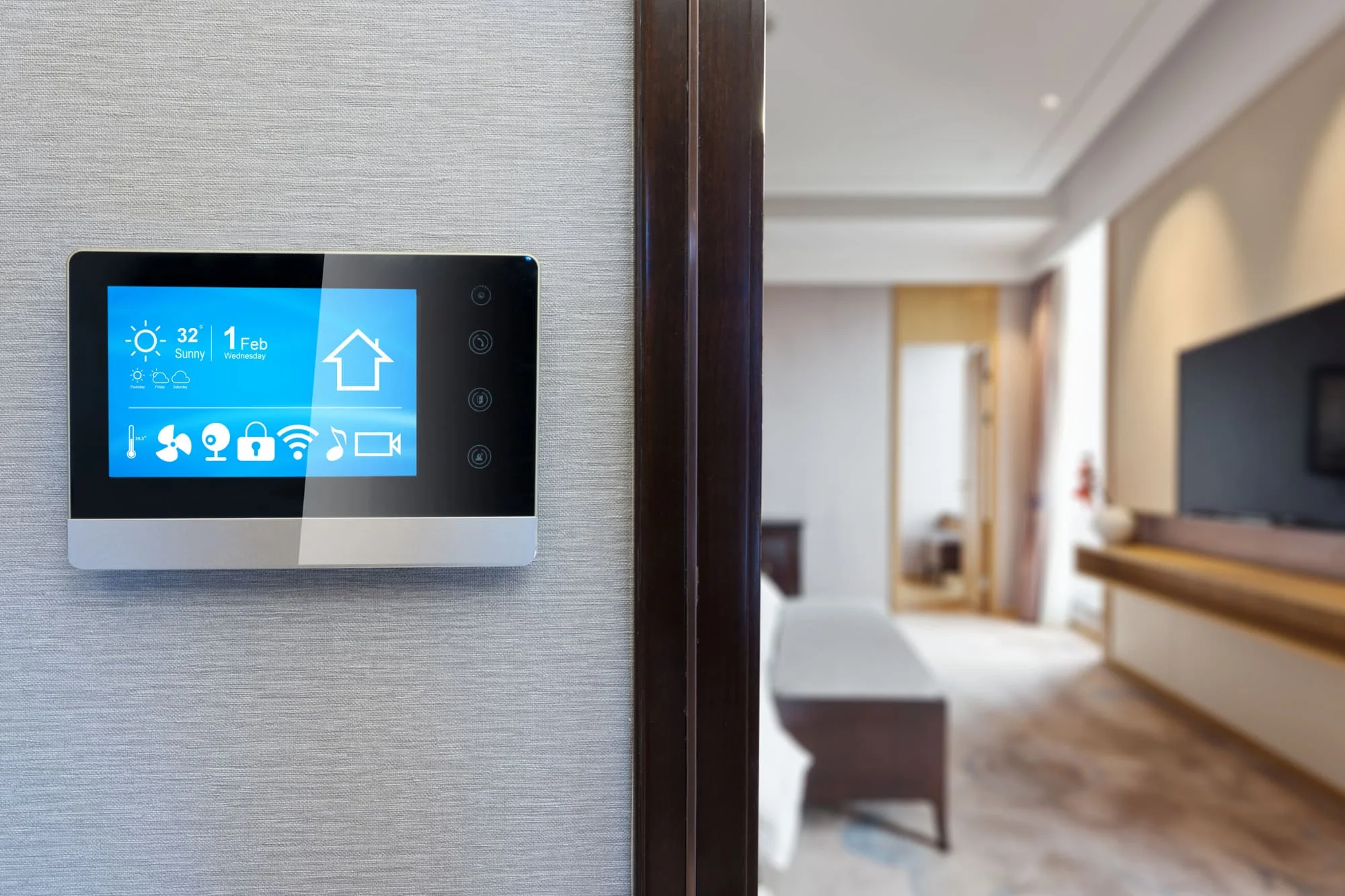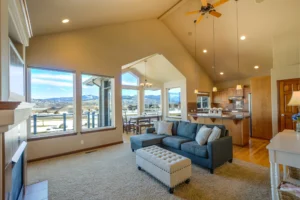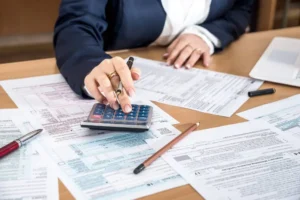Are you a Great Lakes resident seeking to improve your carbon footprint, lower your utility bills and make your home more energy-efficient?
If so, your local energy company could help you turn this dream into a reality.
The Great Lakes Energy-Efficiency Rebate Program makes it affordable for homeowners in your region to make the switch to more eco-friendly and efficient heating and cooling technologies.
Today, we’re taking an in-depth look at the features of this program including what it entails, how to get started and the steps to take to claim your rebate.
Ready to learn more? Let’s go!
What is the Great Lakes Energy-Efficient Rebate Program?
![]()
This program is an effort put forth by the Great Lakes Energy Corporation. It’s designed to incentivize the purchase of energy-efficient heating solutions by residential homeowners in the area.
To be eligible for the greatest rebates, residents must purchase at least one of these systems:
- Efficiency air-source heat pump
- Geothermal heat pump
Residents who live in an eligible location and purchase an efficiency air-source heat pump can qualify for a rebate of $250 to $750 per unit. Those who live in an eligible location and purchase a geothermal heat pump can qualify for a rebate of $500 to $750 per unit.
In addition to these specialized rebates, the program also extends other rebates to customers of Great Lake Energy. Made possible through the Michigan Electric Corporation’s Energy Optimization Program, these rebates help cover the cost of a variety of energy-efficient upgrades, including those made to:
- Appliances
- Lighting
- HVAC equipment
The 2019 rebates provided per unit for qualifying HVAC equipment include:
- Wi-Fi-enabled thermostat: $75
- ECM blower motor: $200
- Central air conditioner: Varies by SEER rating from $150 to $500
- Mini/multi-split air-source heat pump: $700 for outdoor units, $50 for indoor units
- HVAC combo bonus (ECM blower motor plus new central AC): $100
- Smart HVAC combo bonus (ECM blower motor plus new central AC, air-source heat pump, or geothermal heat pump plus Wi-Fi thermostat): $150
- Central AC or air-source heat pump tune-up: $50
- Energy-efficient circulation pump: $100
- Heat pump water heater: $700
- ENERGY STAR-rated pool pump: $250
- Pipe wrap insulation on electric water heater outlet: $8 maximum
While all of these upgrades can help put money back in your pocket, you stand to gain the most when you install an air-source heat pump or geothermal heat pump. Let’s take a look at a few reasons to make this switch.
Why Choose an Efficiency Air-Source Heat Pump?
There’s no denying that Michigan weather can be some of the coldest in the country. In your efforts to keep your home as warm and comfortable as possible, why should you consider a heat pump over a traditional air conditioning unit or furnace?
The answer is simple: They use only a fraction of the energy that those other systems require, generating an output that’s equal to or greater than their capacity.
They also feature simple functionality. Similar to the way your refrigerator operates, a heat pump will use electricity to help heat travel from a cooler space to a warmer space. As it does, it cools the cool space down even more and makes the warm space even warmer.
What does this mean for your home?
In the summertime, when you’re trying to stay cool, a heat pump will move warm air/heat away from your cool house and into the warm outdoors. This helps keep your rooms more comfortable.
Then, in the wintertime, it has the opposite effect. At that time, the pump will absorb heat from the air outside and move it into your home to keep it warm. Worried the Michigan air will be too cold to provide any heat? Don’t be! Some modern heat pumps can derive heat from temperatures as low as 20 degrees below zero!
In the event that temperatures become too cold for your system, you can supplement your setup with a secondary heating system, such as a gas furnace.
By moving heat rather than generating it, a heat pump can condition your space for as low as one-quarter of the cost of traditional heating and cooling systems.
Lowering Your Electric Rates with an Air-Source Heat Pump
When you take advantage of the Great Lakes Energy Efficient Rebate Program and install a heat pump as the primary source of heat in your home, you could also qualify for a lower overall electric rate.
Great Lakes Energy refers to this as its Efficient Electric Heating (EEH) rate. In short, this allows residents to save on the energy that their home consumes when they install an energy-efficient electric heating system
If you install an air-source heat pump in your home, you’ll not only qualify for the one-time rebate on your overall purchase. In addition, you could also receive a discount equal to three-cents per kilowatt-hour (kWh) off your energy bills rendered from November to May, excluding the following months:
- June
- July
- August
- September
- October
Why Choose a Geothermal Heat Pump?
Another kind of heating system incentivized under the Great Lakes Energy Efficient Rebate Program is a geothermal heat pump.
While an open-air heat pump works to move heat between your house and the outside air, a geothermal model relies on the earth’s natural resources to deliver even, efficient heating and cooling to your home.
This is an ideal setup for Michiganders, as the ground temperature in the state remains consistent at 50 degrees Fahrenheit once you reach a certain underground level. This helps keep your pump both reliable and efficient.
How does it work?
Technicians will install a continuous loop of polyethylene pipe in the ground surrounding your home. Then, they’ll fill that pipe with water and eco-friendly antifreeze that won’t hurt the soil. As it moves through the loop, this solution extracts heat from the ground. It then delivers it to your house, warming it in the winter and cooling it in the summer to keep you comfortable.
While a geothermal heat pump can help you shave 30% to 60% off the costs to heat your home via traditional means and 20% to 25% off the cost to cool it, it can be around double the price to purchase and install. That’s why the rebate program incentive offered for this type of system is double that of an air-source heat pump.
Lowering Your Electric Rates with a Geothermal Heat Pump
Like an air-source heat pump, a geothermal heat pump could also save you money on your monthly utility bills.
The Great Lakes Energy Efficient Rebate Program EEH rate for this system is also available at a discount of three cents per kilowatt-hour (kWh). However, unlike the other air-source pump EEH rate, which is only offered seven months out of the year, the geothermal rate is available for all 12 months.
Qualifications to Apply for the Rebate Program
Not just any Michigan resident can apply for a rebate on the purchase of an air-source heat pump or a geothermal heat pump. At the same time, you’ll also have to pass special qualifications to receive the lower EEH rate.
To meet eligibility as a homeowner, you must:
- Rely on a high-efficiency geothermal or air-source heat pump as your primary heating system
- Be a member of Great Lakes Energy, a Touchstone Energy Cooperative
- Currently receive monthly service from the cooperative under Rate Schedule A or Rate Schedule GS (single-phase service)
- Install the new energy-efficient pump at the same location where you receive service from Great Lakes Energy
If you qualify for the EEH rate, you’ll be required to sign a contract that locks you in at that new charge. You’ll also have to install special monitoring equipment before you can begin paying the discounted rate.
Note: If you were used to paying a discounted rate on your utility bill before January 1, 2015, this was known as a Controlled Heating Rate. After that date, those rates became ineffective and unavailable. Now, all rebates are issued under the new EEH rates.
There is only one rebate or discount applied per account or meter, per residential location. Moreover, you won’t be able to start reaping the financial benefits of the system until the installation is complete.
System-Specific Rebate Qualifications
So far, we’ve discussed the qualifications that you must meet to be eligible for the rebates as a homeowner. However, there are also specific metrics that your new systems must pass. This is to ensure that the systems you install are truly energy-efficient.
To measure this performance, Great Lakes Energy relies on the following measurements:
- Energy Efficiency Ratio (EER)
- Coefficient of Performance (COP)
- Seasonal Energy Efficiency Ratio (SEER)
- Heating Seasonal Performance Factor (HSPF)
Below, let’s take a look at the different types of electric heat pumps you could install under this program and the standards that each one must meet or exceed.
- Closed Loop Water-to-Air Geothermal: EER 17.1, COP 3.6
- Open Loop Water-to-Air Geothermal: EER 21.1, COP 4.1
- Closed Loop Water-to-Water Geothermal: EER 16.1, COP 3.1
- Open Loop Water-to-Water Geothermal: EER 20.1, COP 3.5
- Direct Geoexchange: EER 16.0, COP 3.6
- Air-Source Heat Pump Split System: EER 12.5, SEER 15, HSPF 8.5
- Air-Source Heat Pump Package System: EER 12.0, SEER 14, HSPF 8.0
While these are the current efficiency standards, understand that they are subject to change at any given time.
Calculating Your EEH Discount
How does Great Lakes Energy monitor your new system’s output to ensure that it qualifies for the rebates and incentives offered through its program? And, how does it apply the discount to your specific meter?
The answer lies in the system’s installation. Your technician will wire your heat pump through an auxiliary meter. This is a second meter designed for the sole purpose of reading the kWh used by your new heat pump system. This is the meter on which Great Lakes Energy will apply your three-cent discount.
While the utility company will furnish this meter at no cost, you’ll be responsible for finding a professional installer who can set it for you. Once the primary meter base in place and it passes a county inspection, you’ll need to verify that your heat pump is up and running in good operational condition. At that point, you’re ready to install the auxiliary meter.
Keep in mind that your discounted EEH rate will only apply to the kWh used by your new heat pump. Your primary, existing electric meter will keep recording the kWh of your other appliances at your normal residential rate. To simplify administrative matters as much as possible, you’ll only receive one comprehensive bill that calculates the readings of both meters.
The meters will send readings to the Great Lakes Energy office every day. This allows the utility company to monitor your usage and make sure you’re using your new system effectively.
Where to Purchase Your New System
Are you interested in taking advantage of the Great Lakes Energy rebate to purchase a new qualifying heat pump system? If so, it’s important to understand that the utility company doesn’t sell these systems directly.
Instead, you can reach out to a local builder to learn where to purchase energy-efficient heat pump systems. The Michigan Energy Optimization program makes it easy to search for participating contractors.
Submitting Your Rebate Request
Once you work with your contractor and purchase a qualifying system, you have 90 days after installation to submit your application and rebate request to Great Lakes Energy. Either you or your contractor must fill out the form and return it to the utility’s office. In addition, you’ll also need to attach a copy of your sales receipt.
From there, Great Lakes Energy will process your request and issue your rebate with 30 days if your system meets the above-listed efficiency requirements.
You can find a copy of the 2019 application form here.
Take Advantage of These Energy-Related Rebates
If you’ve been considering your residential HVAC systems to more energy-efficient models, there’s never been a better time to do. Thanks to the Great Lakes Energy Efficient Rebate Program, Michigan residents can stand to earn a substantial amount back when they make these beneficial investments.
Need help navigating this program? Interested in learning more about how you can help save the environment and save money, even on your taxes? Contact us today for the expert tax consulting advice you need.





